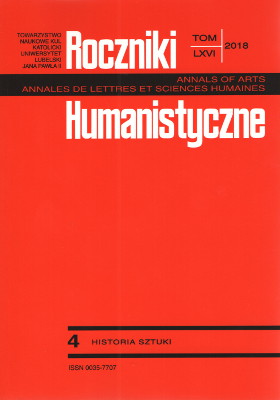Nieznany list Zygmunta Vogla do króla Stanisława Augusta oraz kilka refleksji o edukacji malarza
An unknown letter of Zygmunt Vogel to king Stanisław August of Poland and a few reflections on the education of the painter
Author(s): Ryszard MączyńskiSubject(s): Fine Arts / Performing Arts, Visual Arts
Published by: Towarzystwo Naukowe KUL & Katolicki Uniwersytet Lubelski Jana Pawła II
Keywords: Zygmunt Vogel; Stanisław August Poniatowski; watercolor; veduta; patronage; artistic education; Enlightenment; remnants of the past
Summary/Abstract: The article presents a letter from Zygmunt Vogel (1764-1826), a future watercolorist, to King Stanisław August, found in the collection of the National Archives in Cracow. The letter, written in 1786, is very interesting, because it provides a handful of new and unexpected facts to the biography of this important artist, it also indicates – as it seems – the key moment in his life. It turns out that at that time he suffered vision problems and asked the king for permission to leave the Castle Art Workshop, where he was educated, and incorporate him into the corps of the Crown Army engineers. Vogel’s interest in engineering issues stemmed from his previous contacts with Christian Gottfried Deybel von Hammerau, an officer in the pontooner corps, and Jan Ferdynand Nax, a royal builder, dealing with the navigability of Polish rivers, who appeared as teachers of civil and military architecture. The supplication was not acquiesced, because the monarch, appreciating his inherent talent and acquired painting skills, dissuaded him from doing so, supported him with a monthly salary, and soon – after his return from a trip to Kaniów in 1787 – hired him to preserve the architectural monuments of the national past in watercolor vedutas. Vogel did it perfectly and was appointed the royal “cabinet draftsman.” In the autobiography, written by the painter, an image of “the most important moment” in his life appeared – an accidental conversation with Stanisław August who, giving his patronage to the young man, guided him. However, the published letter to the king proves a certain hoax perpetrated by Vogel. The monarch’s interest was not completely accidental, but was provoked by a petition addressed to him.
Journal: Roczniki Humanistyczne
- Issue Year: 66/2018
- Issue No: 4
- Page Range: 75-102
- Page Count: 28
- Language: Polish

